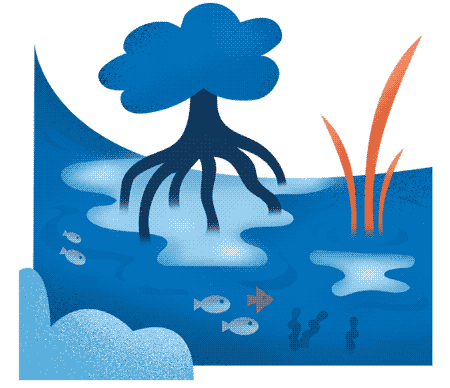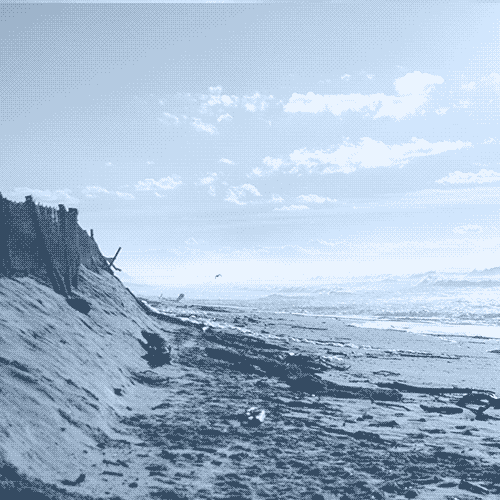
The ocean and coastlines are now the subject of much interest in the context of ‘blue growth’, leading to rapid development of maritime and coastal economic activities.
However, this utilitarian vision ignores a fundamental reality: these land-sea interface areas are not limitless spaces to be exploited, but fragile ecosystems on which marine and coastal biodiversity depend, as well as millions of coastal communities whose lives and livelihoods are intimately linked to the health of these environments.
These limited territories are under increasing pressure from rapid urbanisation, the proliferation of economic activities, overexploitation of resources and the impacts of climate change. This intensification of use generates numerous conflicts between the different actors who share these precious spaces.
Faced with these highly complex governance issues, Surfrider Foundation Europe is working to create the conditions for constructive dialogue between all stakeholders. We are committed to promoting the sustainable coexistence of maritime and coastal activities and to making our voice heard in debates on conflicts of use that threaten the balance of these exceptional territories.
Our approach and requirements

Coastal development and maritime management:
for resilient coastal areas
Coastal areas, which serve as interfaces between land and sea, are subject to dual pressures: on the one hand, accelerating climate phenomena (coastal erosion, rising sea levels, extreme weather events) and, on the other, intensifying human pressures linked to increasing coastalisation. This concentration of populations and activities – urbanisation, infrastructure, pollution, resource exploitation – amplifies the vulnerability of these exceptional territories, which are home to unique biodiversity and support millions of people.
Surfrider Foundation Europe advocates a comprehensive and concerted approach to coastal development and the management of maritime activities. The association advocates for balanced management of maritime spaces, which are now coveted for a multitude of often conflicting uses: fishing, maritime transport, tourism, and marine renewable energy.
Surfrider advocates for open, respectful, and transparent dialogue between all stakeholders—local authorities, businesses, citizens, and sea users—to find solutions that respect both the inhabitants and the environment.
A nature-based adaptation strategy – To address these interconnected challenges, Surfrider Foundation is taking action on several fronts: encouraging adaptation policies that incorporate rising sea levels and erosion into development projects, supporting an energy transition that respects biodiversity and local communities, and promoting collaborative approaches to balanced and sustainable projects.
The aim is to promote coastal developments that respect natural dynamics while responding to the climate challenges of tomorrow.
This holistic vision aims to preserve unique ecosystems while ensuring the safety and well-being of coastal communities, with a view to building territorial resilience in the face of ongoing changes.
Related publications
PDF File
Blue carbon credits – Between expectations and hazards : study on stakeholders’ perceptions on blue carbon credits
PDF File
Drilling is Killing – Manifesto
PDF File
Blue Manifesto – The roadmap to a healthy ocean in 2030
PDF File
Report on the European Citizen Consultation – Blue Up 2024
